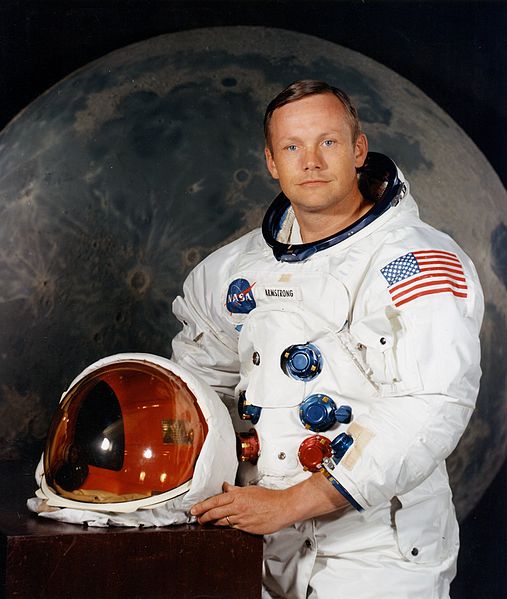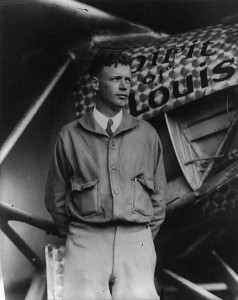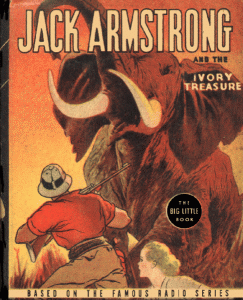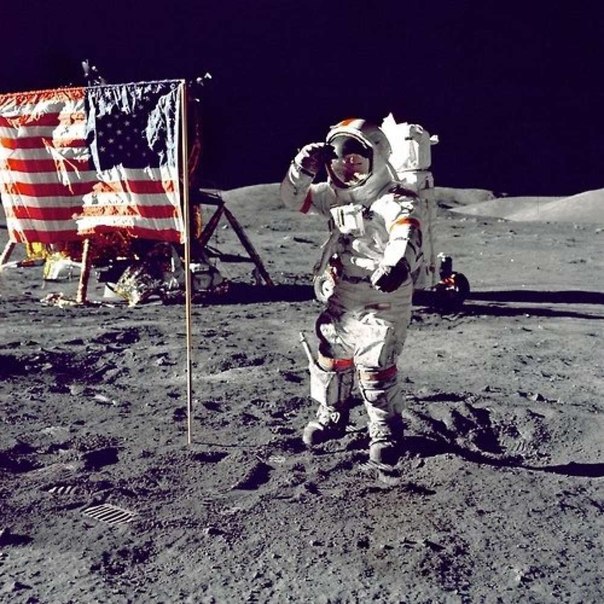 Neil Armstrong lost his battle with heart disease on this day in 2012 and returned to the heavenly firmament he so boldly explored for us over 40 years ago. He spent most of the years after his moon landing triumph in self determined obscurity, rather than take advantage of the international celebrity status his achievement would have brought him. In that way, he ended his time on earth much as the great American explorer of the heavens that blazed the way before him, Charles Lindbergh, each separated from the mythic event by a distance from the public that would seek to adulate him. How each came to be reclusive had as many different spins as could possibly be imagined, but they are weaved into the fabric of what it means to be an exemplary American hero, and what the pressures of mega-celebrity status forces inevitably of great achievers.
Neil Armstrong lost his battle with heart disease on this day in 2012 and returned to the heavenly firmament he so boldly explored for us over 40 years ago. He spent most of the years after his moon landing triumph in self determined obscurity, rather than take advantage of the international celebrity status his achievement would have brought him. In that way, he ended his time on earth much as the great American explorer of the heavens that blazed the way before him, Charles Lindbergh, each separated from the mythic event by a distance from the public that would seek to adulate him. How each came to be reclusive had as many different spins as could possibly be imagined, but they are weaved into the fabric of what it means to be an exemplary American hero, and what the pressures of mega-celebrity status forces inevitably of great achievers.
Neil Armstrong was the living, breathing representative of the archetype of the American hero. The American Hero was smart, unassuming, competent, brave, adventurous, matter of fact, and most importantly, successful. When Armstrong was born, Charles Lindbergh was over three years removed from his epic Spirit of St Louis solo flight from New York to Paris and was a mythic figure. At just 25 years of age, Lindbergh singularly accomplished what  teams of pilots died trying to do, achieve an airborne connection between the new world and the old using devices that were still in their infancy of development, the airplane. Lindbergh was the most recognized figure in the world – millions had come out to see him as he toured the world, and later with his wife Anne at his side, showed America that flight could be safe and predictable for travel, shrinking the world for all time – and in the process founding Pan Am and TWA airlines. Lindbergh looked and acted the part the Americans wanted to see as the very best we could produce – a person who was raised among us, had no special breaks, but through his grit and personal ability achieved greatness – and never acted any differently. This was the type of hero Americans all hoped their children would emulate themselves after, and the Lindbergh archetype was promoted in the press and on radio so no American boy growing up in the thirties could possibly miss the connection. Lindbergh’s persona became Jack Armstrong, All American Boy on the radio, very likely playing in the Neil Armstrong household radio in Ohio, a young man who never lied, worked
teams of pilots died trying to do, achieve an airborne connection between the new world and the old using devices that were still in their infancy of development, the airplane. Lindbergh was the most recognized figure in the world – millions had come out to see him as he toured the world, and later with his wife Anne at his side, showed America that flight could be safe and predictable for travel, shrinking the world for all time – and in the process founding Pan Am and TWA airlines. Lindbergh looked and acted the part the Americans wanted to see as the very best we could produce – a person who was raised among us, had no special breaks, but through his grit and personal ability achieved greatness – and never acted any differently. This was the type of hero Americans all hoped their children would emulate themselves after, and the Lindbergh archetype was promoted in the press and on radio so no American boy growing up in the thirties could possibly miss the connection. Lindbergh’s persona became Jack Armstrong, All American Boy on the radio, very likely playing in the Neil Armstrong household radio in Ohio, a young man who never lied, worked  with others, was brave and adventurous, but maintained the ah-shucks attitude that all Americans cherished through hard times.
with others, was brave and adventurous, but maintained the ah-shucks attitude that all Americans cherished through hard times.
Young Neil Armstrong, however, would have certainly been exposed to the other side of mega-celebrity, the public’s lust to know everything about their heroes, and invade their personal space sufficiently to uncover their human frailties. Neil Armstrong growing up in Ohio would have witnessed the obsessive coverage of the Lindbergh baby kidnapping, subsequent trial, and the uncovering of the other side of Charles Lindbergh, the colder, more calculated, and reclusive character that through no fault of his own made him a less sympathetic figure than he by every right should have been. Lindbergh was stunned with the public access to his personal life and forevermore sought a reclusive existence far away from his adoring public. He would come forward only intermittently from then on into the public eye, and seemingly only to misstep time and time again, in driving his personal darker views of humanity against the public’s previously unquestioning opinion of him. The young adult Neil Armstrong could not have missed the Lindbergh example as to how pedestal of celebrity adulation is shaky and precarious to those who would stand abreast it. It likely impressed upon him that in the unlikely event he would find himself in such a circumstance, he would never permit the exposure to the heat of adulation that brought Lindbergh to such a reclusive end. He would instead choose seclusion, rather than have it forced upon him.
Neil Armstrong quietly built the resume of an American hero, aerospace engineer, US Navy pilot in Korea, test pilot of the X-15, and subsequently in the very exclusive club of American astronauts, becoming command pilot of Gemini 8. He was, in short, the epitome of Thomas Wolfe’s definition of The Right Stuff. As the flight crews became selected for the order of flights for the planned conquering of the moon, it became apparent to NASA that the command pilot who would actually step foot on the moon would need to be above all seen as overwhelmingly competent by his crew, rather than back slapping and gregarious. No one fit the mold better than Armstrong. The story of Apollo 11’s epic flight has been told before in Ramparts. The story of the final three minutes of the landing of the LEM module, with failed computers worthless for computer residual fuel, an analytic Aldrin calling out estimated fuel status and residual flight power calculated on his slide rule, and the flight commander Armstrong determining to land the craft manually on the moon, or die trying rather than abort, is the stuff of legend. With a quarter of the the world’s population than watching simultaneously and breathlessly back on Earth, Armstrong then calmly planted his foot for the first time in history on another celestial object, just 66 years after man had achieved controlled flight, and only 42 years after Lindbergh set foot in Paris . “That’s one small step for (a) man, one giant leap for Mankind”, Armstrong intoned, and the world gasped at the representative symbolic achievement that had just occurred – the linear path from man’s first wonderment of the heavens, to Armstrong physically claiming it for all humanity.
No one would likely have been positioned to be a more recognized figure, and therefore a very wealthy man, than Armstrong after successfully splashing down on Earth on July 24th, 1969 after his epic voyage. But perhaps the images of Lindbergh’s fall from grace prepared him to let it go without taking advantage of the moment. There would be no Senator Armstrong, no President Armstrong, not even retired astronaut extraordinaire Armstrong. Neil Armstrong was instead perfectly willing to return to the obscurity of normal life, eventually taking a job as a engineering professor at the University of Cincinnati and establishing a farm in Lebanon, Ohio where he kept to himself and his closest friends. He avoided most controversies and situations where his name and position could be abused by others, and as a result over time lost his status to newer generations as a immediately recognized figure, to his personal satisfaction, and to the loss of younger generations who are starving to know what a real hero looks and sounds like.
With Neil Armstrong’s passing, the cumulative can do spirit of a 1960’s American nation has passed with him. Modern national goals are partisan and short sighted, and reflect the politicians who pronounce them. The greatness of Neil Armstrong, and on so many levels he was truly great, is obscured by modern layers of cynicism and self absorption. We should ask ourselves if the American Hero model we so admired, and of which Neil Armstrong is an immortal example, should once again have credence in our age. Neil Armstrong once said that one of his biggest disappointments in life was never dreaming of his time on the moon. It might pleasure him to know, that he made the dreams of an entire nation and world come true. God Speed, Neil Armstrong.

